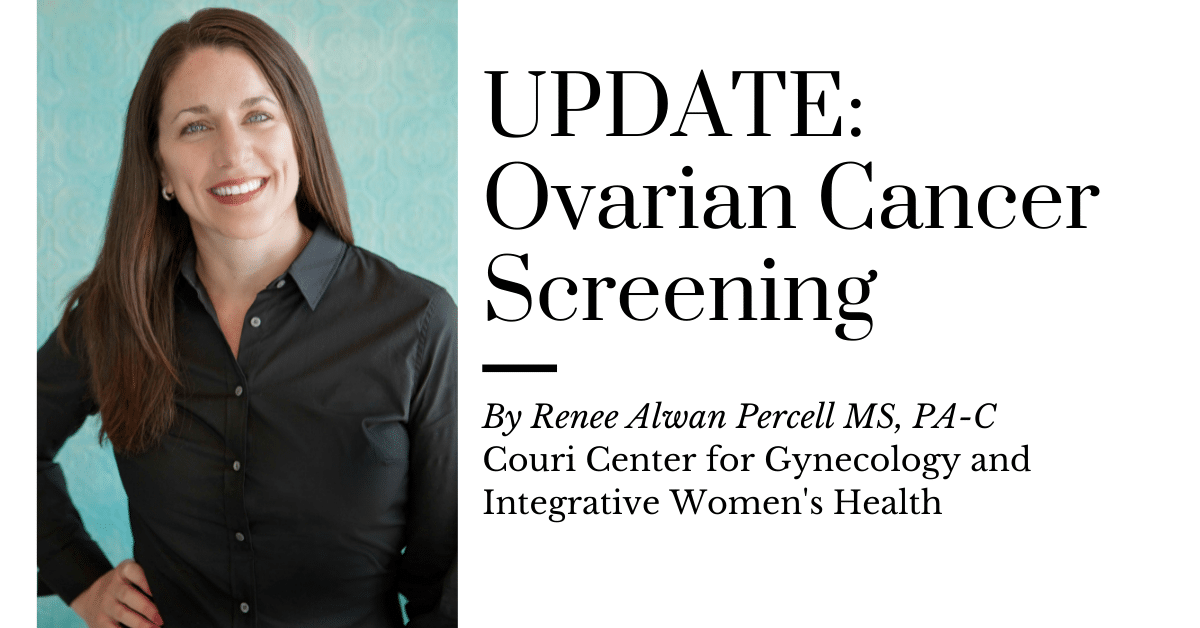
At the Couri Center, we stress the importance of preventive care. Keeping up with your yearly exams is imperative in preventing disease by screening for health risks and screening for cancers. There are five main types of gynecologic cancers: cervical cancer, ovarian cancer, uterine cancer, vaginal cancer, and vulvar cancer. Of the five cancers, ovarian cancer is associated with the highest mortality rate. In fact, it is the 5th leading cause of cancer death in the US, with a 10-year survival rate of 35%.
A recent study by the UK Collaborative Trial of Ovarian Cancer Screening (UKCTOCS) was conducted to determine if screening women for ovarian cancer would reduce the high mortality rate of ovarian cancer. Over 200,000 women aged 50-74 were included in this study. Screenings included yearly exams, pelvic sonograms, and CA 125 (A CA 125 test measures the amount of the protein CA 125 (cancer antigen 125) in your blood.) Unfortunately, this large study showed that screening for ovarian cancer did not save lives. Therefore screening for ovarian cancer is not recommended.
Symptoms of ovarian cancer are vague and can be difficult to diagnose. It is important to discuss persisting symptoms with your health care professional. Symptoms include bloating, pelvic pain, feeling full too quickly, or changes in bowel/bladder habits. While this can seem very discouraging, there is some good news. There have been significant advancements in the treatment of ovarian cancer. Treatments available 10 years ago did not stop the progression of the cancer. The key is to establish with a provider to discuss your health and any symptoms you may have. If you have a family history of ovarian cancer, you may be eligible for genetic testing to see if a genetic mutation exists, making you at high risk for developing ovarian cancer. The Couri Center offers genetic testing, and we are accepting new patients if you are due for your yearly exam. We are here to help.
Be well,
Renee Alwan Percell, MMS PA-C
